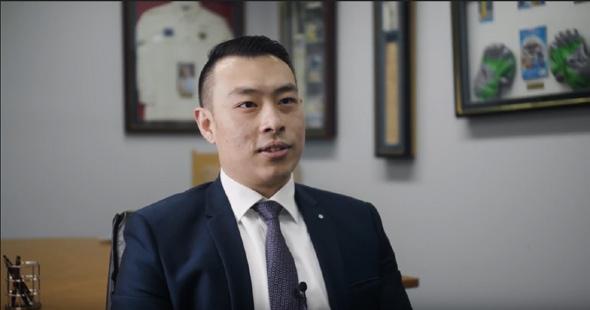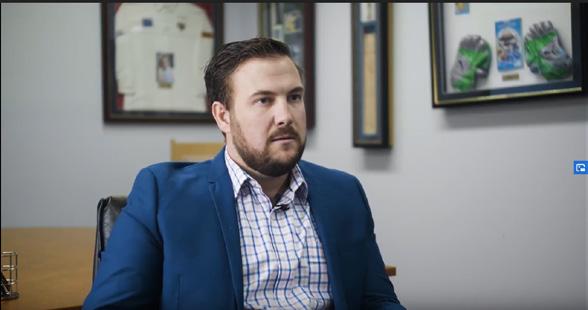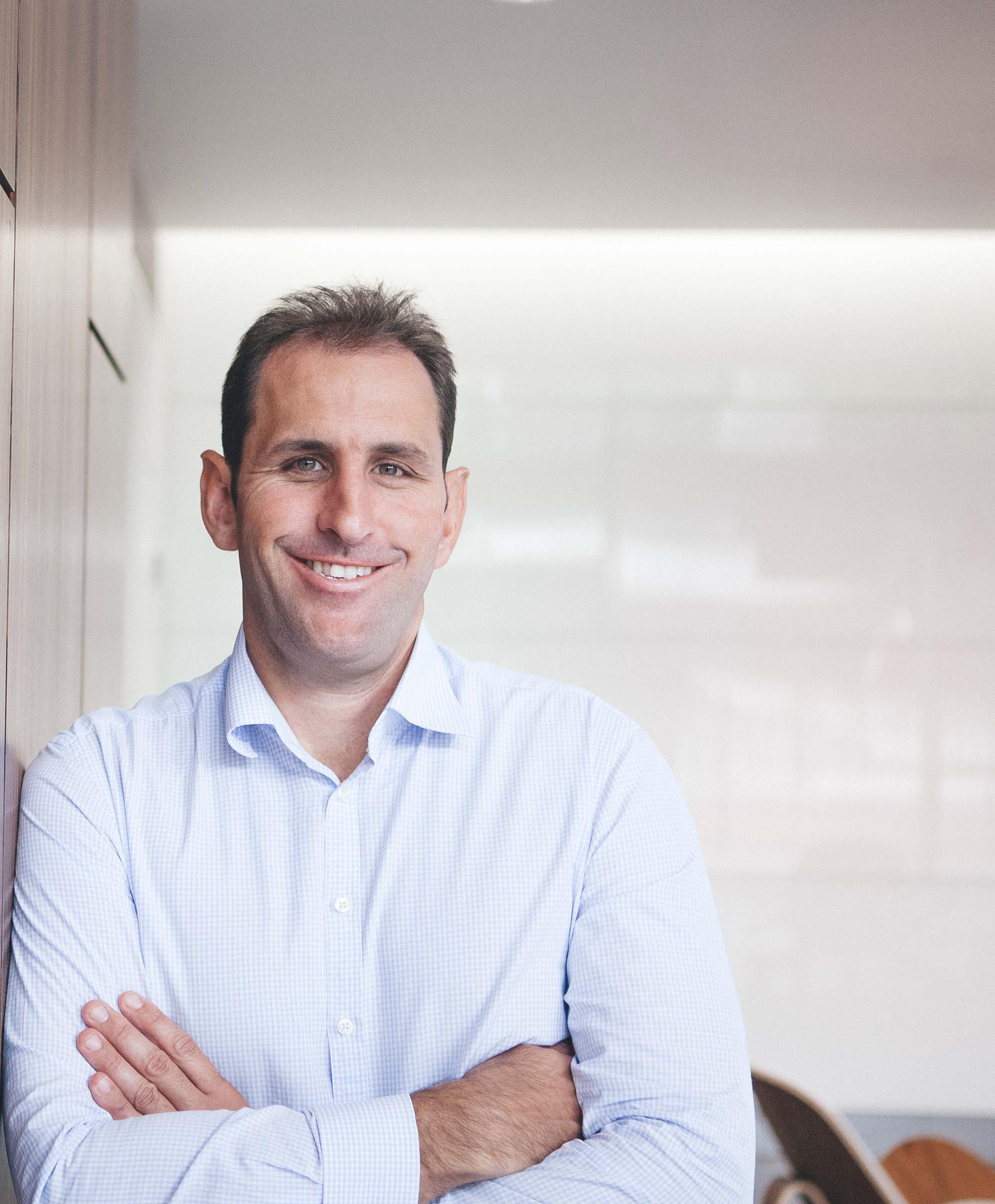
20 minute read
QUESTIONS YOU SHOULD BE ASKING YOUR ACCOUNTANT
It’s important to be on top of your finances, now more than ever, and a reputable accountant can keep track of your finances, supply you with a professional analysis of your balance sheets and make predictions for your business. Regular dialogues with your accountant will help direct you towards the best decisions to grow your bottom line.
Here are 10 questions you should be asking your accountant to ensure financial growth.
Advertisement
1. HOW CAN I HELP YOU DO A BETTER JOB FOR ME?
Your accountant is as good as the tools you’ve equipped them with. Provide them with all the relevant information necessary and be fully transparent with them about your finances. Good accountants may even ask you for other documents to better organise your finances.
2. WHAT SHOULD I CONSULT WITH YOU REGULARLY ABOUT, IN TERMS OF MY FINANCES?
An accountant is knowledgeable in matters you may not be familiar with, such as individual and corporate taxes, and financial and retirement planning. By building a relationship with your accountant where they understand how you think in terms of your business and finances, they will be able to determine which factors to keep you regularly aware of. This will help you make better decisions for your business.
3. WHAT IS MY BREAK-EVEN POINT?
A good business strategy keeps profit above the break-even point, while a really good one keeps it way above the point and sustains it. The first step in achieving this is to know what your break-even point is. Afterwards, ask your accountant for specific ways to keep above it.
4. WHAT ARE MY MOST PROFITABLE PRODUCTS?
Sometimes, your most profitable product isn’t even your best-seller. This information might escape your notice, but not that of a skilled accountant. Your accountant’s insights will become instrumental in creating strategies to boost sales of this product and maximise profit.
5. HOW CAN I CUT DOWN ON EXPENSES?
An accountant can help you determine how to strategically cut costs. For example, accountants can give you insight into your true product costs and which of your products are most profitable. They also often have an idea on the expenses of your competitors. This can be very useful information in determining where to make cuts that will benefit you in the long run.
6. HOW CAN I BETTER MANAGE MY CASH FLOW?
Maintaining a sustainable business requires maintaining a positive cash flow, and this is usually the main stressor for many small business owners. Ask your accountant to identify problem areas, tendencies you may have overlooked, as well as methods to help manage these.
7. HOW CAN I BE BETTER PREPARED FOR TAX SEASON?
This is the main reason small businesses hire accountants. Accountants will be extremely helpful in figuring out which tax credits and deductions to claim, and their knowledge of tax laws will help you maximize writeoffs. Ask your accountant all your tax questions even before the filing deadline and get them involved in gathering documents and data throughout the year to avoid the year-end rush.
8. CAN YOU HELP ME REVIEW AND NEGOTIATE BUSINESS CONTRACTS?
Accountants cannot practice law without a license, but they can collaborate with your lawyer in terms of the financial, commercial and tax aspects to make your contracts work for you.
9. HOW IS MY BUSINESS FARING COMPARED TO SIMILAR BUSINESSES IN THE INDUSTRY?
To know how well you are faring, you need to also evaluate your business’s performance against your competitor’s. Accountants can supply you with insight into industry trends and areas of improvement. Maximizing this information will help you keep up with competition and ensure growth.
10. WILL I SURVIVE AN ECONOMIC DOWNTURN?
This is very relatable nowadays. The Covid-19 pandemic caused the downfall of many businesses and industries. This reveals the importance of a contingency plan to keep businesses afloat during bleaker times. Ask your accountant to spot potential financial risks and identify all possible solutions. This way, you ensure long term health for your business.

HELP YOUR BUSINESS SURVIVE A PANDEMIC

The COVID-19 pandemic has brought fast-moving and unexpected variables, some of which existing crisis plans and teams weren’t prepared to handle. The unprecedented event caught everyone off guard which has significantly impacted businesses and the economy.
As the pandemic continues to evolve, it’s time to shift our focus to efforts that support a return to work, or re-building our businesses, while addressing needed changes in the months ahead. Here’s how organisations can begin making that shift - from mobilising during this time, to stabilising in the new environment and strategising for what’s next. CONSIDER THE CRISIS AS A RESET BUTTON
As the saying goes, the bigger things get, the harder they fall. This adage, unfortunately, is especially true for businesses. Huge companies like J.Crew, Dean and Deluca, and even Target, for example, have closed their doors in recent months.
Meanwhile, locally owned businesses, that are generally more agile, were able to adapt quickly.
The lockdowns have levelled the field. Everyone’s reeling from the weeks and even months without the ability to go to work. This includes your competitors.
So, consider the pandemic as a reset button. Everyone’s going to have to start pretty much all over again. This time, you’re equipped with more insight and wisdom. Hopefully, these are enough to help you make the tough decisions you’re going to have to make throughout this ongoing pandemic.
CHECK YOUR OBLIGATIONS AND UPDATE YOUR TERMS AND CONDITIONS
Due to the current circumstances, there are obligations that you probably won’t be able to meet. That’s okay. There are more reasonable people in the world than those that are not and they’ll understand your situation.
However, this doesn’t mean that you can just expect the kindness to continue throughout the crisis. Whenever you make a commitment, to either your customers or your suppliers, you need to honour it. So, it’s important to review your obligations and your commitments and revise them as needed.
In the meantime, analyse your finances, update your financial forecasts, find cashflow inefficiencies, cancel redundant orders, and find ways to save cash.
Compromise where you can. Where you can’t, don’t. This might mean saying no to new business coming in.
DON’T WAIT FOR GOVERNMENT AID
Part of the taxes we pay is meant for aid during tragedies like this one. However, this doesn’t mean that you should wait for it to come before you do anything to help your business.
Part of the reason why people start their businesses is to have more control over their lives. Waiting for the government to rescue you is in complete opposition of that mindset.
KEEP YOUR REMAINING CUSTOMERS HAPPY
These days, not everyone has the luxury to buy things or to invest in a new product or service, this includes yours.
It’s important, therefore, to keep the customers that you still have happy and content. This means being more proactive with their queries and being more engaged. Generally, just give them the best possible service you can give.
The best thing about your ongoing customers is that since they’re with you during the crisis, there’s an even greater chance that they’re going to keep supporting you even when it’s all over. This, of course, is hinged on their satisfaction.
CONSIDER SCALING DOWN YOUR BUSINESS
As entrepreneurs, we want our businesses to grow. Naturally, scaling down isn’t the most attractive idea in the world.
But, it’s one of the quickest ways to stop your business haemorrhaging cash. So, the pandemic may be the best time to close down that underperforming store or let go of some of your unproductive employees.
THINK BEYOND SURVIVAL
The most crucial thing to do right now is to plan ahead. Survival, while not easy, is still very much achievable.
In the midst of crises like this one, a feeling of shared struggle makes people a little kinder. Everyone, including competitors, may be more sympathetic. However, once it’s over, the competitive nature of business ownership that we all know and love will slowly reappear.
Lay the groundwork for sustained success right now. Forge good relationships with both suppliers and customers, build a comprehensive financial plan, and perhaps more relevant now than it ever was, prepare for future emergencies and tragedies.
CONSIDER YOUR WORKERS
As we adapt to new ways of working beyond this pandemic, we need to address the areas affecting our people, such as returning to workplaces, collaboration and upskilling.
Closed international borders have limited our access to skilled overseas workers. So upskilling your current workers may be more urgent than ever and this quiet period is the perfect time to invest in coming back without the skill gap.
You will need to balance the successful transition of their people back to the workplace or make the decision to continue to work from home. There are a few things to consider; Is remote working still working? Employee health and wellbeing, technological support for remote working, returning to offices and business locations.
TAX AND TRADE
As you build your businesses resilience through the pandemic, there are a range of business continuity decisions around cash flow, workforce and supply chain being made that can trigger many tax compliance and tax governance considerations, so it’s imperative that you stay across the tax implications and business support updates as they develop.
FINANCE AND LIQUIDITY
As we adjust to a new normal and business begins to resume, CFOs will be grappling with many questions. The Australian and global economic outlook will both have significant finance implications, so you will have to focus on scenario planning while managing day-to-day operations and financial and regulatory reporting obligations.
Keep on top of current financial developments and tax implications at marshtinknell.com. There are plenty of blogs and articles keeping you up to date with global changes as we navigate the new business climate together.
STAFF VIDEOS

WHAT ARE YOUR TIPS FOR MANAGING CASHFLOW DURING CRISIS? WHAT ARE SOME TIPS FOR RUNNING A SUCCESSFUL FAMILY BUSINESS?
WHAT SHOULD YOU WATCH OUR FOR WITH CHRISTMAS STAFF BENEFITS & PARTIES?




WHAT ARE SOME TAX TIPS FOR BUSINESSES WITH WORKERS AT HOME?

DEAN BRUMBY: INSURANCE SOLUTIONS YOU CAN COUNT ON
Insurance forms an important part of the risk management strategy for your business as it offers financial protection when things go wrong. Of course, finding the right insurance solutions can be easier said than done and many business owners find it difficult to find the time to arrange insurance.

This is where an insurance broker comes in - an industry expert who can provide professional advice and act on your behalf to make the process of finding business insurance a whole lot easier.
Meet Dean Brumby, now with 24 years of industry experience behind him, Dean Brumby became a shareholder within Austcover, where he has spent the last 16 years building a portfolio of privately owned companies.
“We’re in the business of keeping it personal. We want to get to know you, and you us. We will work better as a team,” Dean says.
Dean’s expertise lies in the fields of surveying, town planning, construction, engineering and manufacturing/ wholesaling businesses. His ability to listen to a client’s needs and requirements and provide cost effective solutions and recommendations means that he invariably delivers efficient, reliable and quality advice.
“Austcover’s ongoing service involves staying up-to-date with your circumstances, needs and levels of cover. We pride ourselves on our values that put the needs and expectations of our clients first. As the majority of our new business is sourced via referrals from existing clients, our reputation depends on it,” he says.
Austcover was established in 1987 and is one of the largest Australian owned insurance broking and financial services businesses, servicing clients both locally and nationally.
“Our success is built on knowing our clients, constantly searching the market for suppliers who can help us best meet our customers needs, delivering outstanding levels of service and supporting our clients when they need us most, in the unfortunate event of a claim.” The primary role of an insurance broker is to act on behalf of their clients in designing an insurance programme to meet risk exposures, market and place relevant policies with underwriters and manage the claims process.
“There is always ongoing changes and management throughout the year in reviewing contracts around insurance clauses and changing asset values or motor vehicle schedules,” Dean says.
“Most importantly we are the advocate for our clients, not the insurance companies. We manage the claims process with the insurers to ensure our client obtains the best possible outcome.”
It’s important that your insurance broker has established valued relationships and proactive lines of communication with those suppliers whose products demonstrate excellence and value for money.
“We ensure our clients have access to a wide range of insurance companies, a broad range of products, exclusive policy options, and of course, competitive pricing.” Dean stands out from the rest by being dedicated to providing a premium level of service to his clients. How?
“Through regular contact, reviews and support services outside the insurance transaction. This can relate to proactive risk management, premium funding, contract reviews and seminars and presentation on changes to the law which may have an impact on businesses I look after.”
If you rely on the internet, email, websites or computer software to operate your business then your current insurance is unlikely to cover one of the most important aspects of your business: your data.
Over 20% of Australian organisations suffered from a Cyber Crime in 2012 and cyber crime is on the rise.
“Particularly around Social Engineering or Phishing. Best described where a server has been hacked and bank account details are changed on invoices which are sent to customers to pay. If funds are paid to fraudulent accounts then the client is covered for potential financial loss and not being paid by their own customer,” Dean says.
“The majority of Cyber claims we see relate to mistakenly paying funds to fraudulent accounts. It’s always wise to check/verify customers bank account details before making payments, especially when you have been notified their bank account details have changed.”
Dean can place Cyber Liability insurance on behalf of his clients, which protects them if they hacked and confidential client data may be at risk.
“Cyber Liability will cover the cost to rectify IT systems following a hack, fines and penalties for any breaches in not securing data and business interruption/ loss of income if the business has limited or reduced trading following the event.”
In times of crisis, a Cyber & Privacy Protection policy will protect you by providing access to a specialist team consisting of an experienced panel of security and privacy consultants to ensure a rapid and effective response.
Dean is also focused right now on Business Interruption Insurance. This protects the turnover and gross profit of a business as a result of damage by an insured peril.
If a business sustains damage by fire or a weather event and it impacts their turnover and gross profit then business interruption insurance will cover the shortfall during the indemnity period which is normally up to 12 months after the loss.
“It’s critical to be adequately insured so the business does not experience financial hardship and employees can be retained. Furthermore, if the business continues to trade then their customers aren’t lost to other competitors,” Dean says.
So, make the process easier on yourself. Your insurance broker will be a single point of contact and have a good understanding of your specific business insurance requirements. Dean’s personalised approach means that he doesn’t provide cookie cutter solutions – instead, he will take the time to get to know you and your business.
Contact Dean for more information on how to best protect your business, at
austcover.com.au
DeanBrumby@austcover.com.au

The undeniable spike in anxiety, depression, PTSD and substance abuse that came with Covid-19 placed a blazing spotlight on mental health. For many, the economic downturn meant fast-depleting savings and bank accounts as well as potential tax debts.
A research by mental health provider, Ginger, revealed that employees are currently experiencing the most stressful time of their career as they face overwhelming uncertainties about the future. Now, more than ever, leaders must commit to their employees’ mental health and overall wellbeing. After all, the health of the company and its bottom line are greatly determined by the health of your workforce.
Here are 5 ways to take care of your employees’ mental health during COVID.
REDUCE THE STIGMA.
Normalise conversations about mental health. Bring it up and make it clear everyone experiences this in one form or another. Educate yourself and your managers on mental health so that signs are quickly spotted and responded to appropriately. Encourage supervisor-subordinate discussions on mental health and encourage efforts by employees to seek help.
USE TECHNOLOGY TO OFFER RESOURCES FOR OVERALL WELLBEING.
Maximize video chats and conferences to boost morale and maintain friendships among employees. This creates a support system and prevents loneliness. Furthermore, use technology to give employees access to useful company benefits and EAP (employee assistance program) benefits.
For example, hire a virtual therapist, or organise virtual in-service events that teach employees stress management and coping strategies. Because financial stability is very relevant nowadays, give your employees access to accounting services or hire accountants to host webinars on good financial strategies.
PROMOTE THE USE OF YOUR COMPANY’S EAP BENEFITS.
Now is the perfect time for your employees to use your company’s EAP benefits. Bring awareness to this important resource and talk to your employees about what it can offer, such as counselors and stress management services open to them.
PROMOTE WORK/LIFE BALANCE.
For remote workers and even those who need to go to the office, it is very important that work does not become a 24/7 schedule. To promote employees’ mental health especially during this stressful time, establish healthy work/ life boundaries. Set breaks and specific times when work starts and ends so that employees can unplug. Let them know that their time for their families and for themselves are just as important as their work.
MAKE EMPLOYEES’ WELLBEING A COMPANY PRIORITY.
This pandemic teaches us that companies must prioritize their employees’ overall wellbeing (meaning physical, mental, and financial wellbeing). Equipping your workforce with tools that help them with their overall health prepares them for any future circumstance that may bring about mental health issues. Examples of these are health insurance, superannuation benefits and EAP benefits. When employees feel that their company cares for their wellbeing, it fosters a sense of loyalty and inspires them to do better. This will have positive effects on your firm’s productivity and net profit.
The reality is, one out of four people worldwide will experience mental health issues at some point in their lives (based on WHO statistics). Refusing to recognise this often translates to a loss of $79 to $105 billion a year because of reduced productivity, absenteeism and health care costs. Thus, building mental strength in the workplace is not only human; it is also prudent. It may take time for mental health to be given the same urgency as physical health, but progress always begins with that first step.

BRETT DUNN Senior Accountant
Brett joined Marsh Tincknell in 2006 after completing a business degree in Accounting. He then went on to complete his Chartered Accountant qualification and now leads a team of accountants, utilising his experience to support them as they develop their technical knowledge.
Let’s find out a little more about Brett.

What do you enjoy most about working at Marsh Tincknell?
We place a lot of focus on having the right people on the bus, so hiring and retaining the right staff is always paramount. The firm has supported me through some big stages in my career and personal life so it’s great knowing they are wanting the best for you, not just to get the best out of you.
Brett loves a good music festival and shares his favourite festival memory.
Looking back it’s hard to pinpoint a favourite memory as each show has its own unique experience which can be fun or unexpected or ridiculous. From a music perspective it would be seeing the Flaming Lips do the Yoshimi Battles the Pink Robots album start to finish in a hotel beer garden at SXSW in Austin, Texas in 2013.
Have you been affected by Covid this year? How did you manage the changes?
From a work perspective, we’ve had numerous clients who have been greatly impacted and it’s hard to imagine the stress the uncertainty has on their lives. It’s tough and uncertain times out there so we’ve just been supporting our clients where we can help navigate the storm. Personally, I was due to get married in August, 2020, in the UK, but Covid definitely messed that up. We’ve rescheduled till July, 2021 so fingers crossed things have eased by then.
How important is work/life balance and how do you maintain your balance?
Work life balance is definitely front of mind for me. A few years into accounting I found the standard 8.30 - 5 wasn’t working for me, so I approached the directors and requested I change my hours to better my performance. I think the key is understanding what you need in yourself to be happy (time for family, be more active, more sleep) and then organising your life so you get enough of all those things. And don’t be afraid to ask your boss! All they can say is no.
The perfect Sunday is….
The perfect every day is bodyboarding! A perfect Sunday is definitely getting the gills wet, whether it be bodyboarding, a surf or swim. Then late breaky and catch ups with friends. Maybe a hit of tennis or some other exercise in the afternoon, followed closely by some beers. Then see a band at night.
ADRIAN TAN Senior Accountant

Adrian is both a qualified Chartered Accountant (CA) and Chartered Tax Adviser (CTA). He is a key member of the team at Marsh Tincknell, providing services and advice to clients across a range of industries.

So, how does Adrian unwind outside the office?
I am really passionate about my tennis and NRL, which often ends up with me yelling at the TV. I also do enjoy my cooking and finding the best food around Brisbane.
How important is work/life balance and how do you maintain your balance?
Marsh Tincknell really does provide that flexibility to its staff but I make sure I allocate time during the week for myself, whether that’s going to the gym, playing some sport, experimenting with a new recipe or going out for a meal.
How did you get into accounting?
Maths was a strong point of mine when I was younger but my interest in accounting really developed when it was paired with business. Accounting seemed to be the common denominator across many of the business topics and really gave an insight into how they operated. Since then I have found that my real interest is building relationships with my clients and helping them on their journey to success.
Dreaming of travel? Where in the world and why?
I would really love to go to South Korea and Japan. Food is a big factor for visiting these two countries but I would also love to go skiing over there.
The perfect Sunday is…
A meal with friends or family, paired with a nice wine or cold beer.

